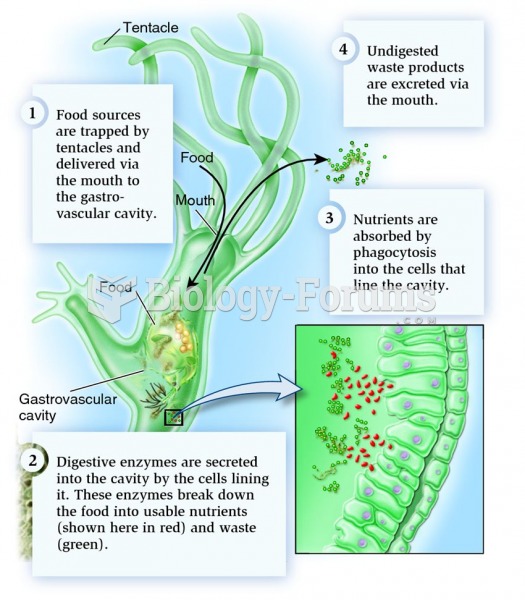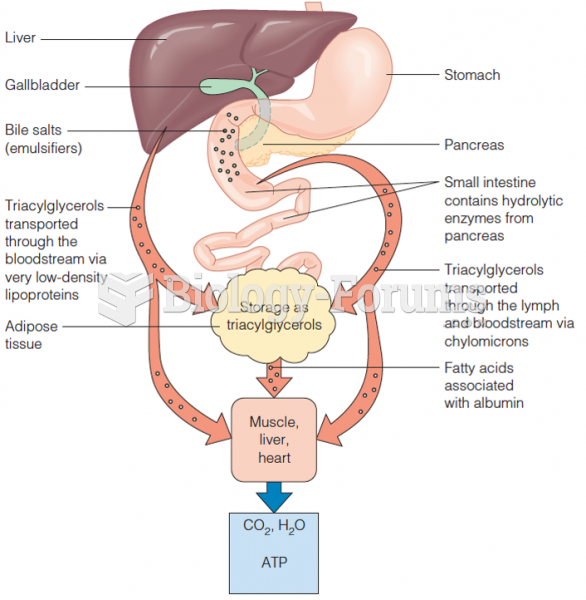This topic contains a solution. Click here to go to the answer
|
|
|
Did you know?
As the western states of America were settled, pioneers often had to drink rancid water from ponds and other sources. This often resulted in chronic diarrhea, causing many cases of dehydration and death that could have been avoided if clean water had been available.
Did you know?
More than 4.4billion prescriptions were dispensed within the United States in 2016.
Did you know?
It is difficult to obtain enough calcium without consuming milk or other dairy foods.
Did you know?
Earwax has antimicrobial properties that reduce the viability of bacteria and fungus in the human ear.
Did you know?
If all the neurons in the human body were lined up, they would stretch more than 600 miles.







